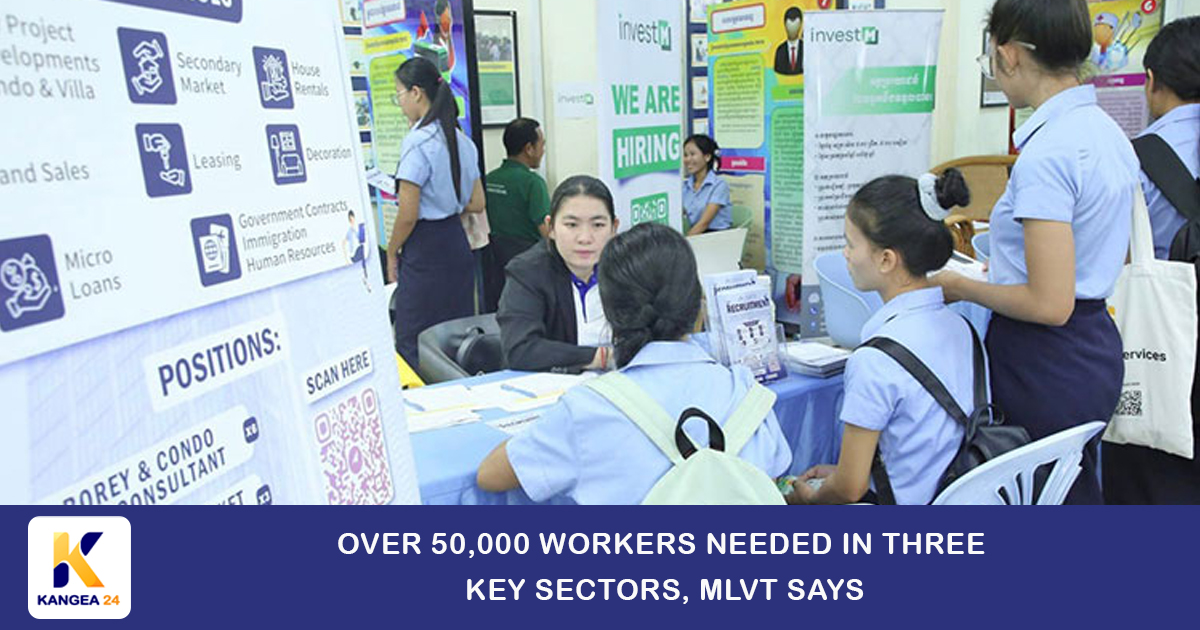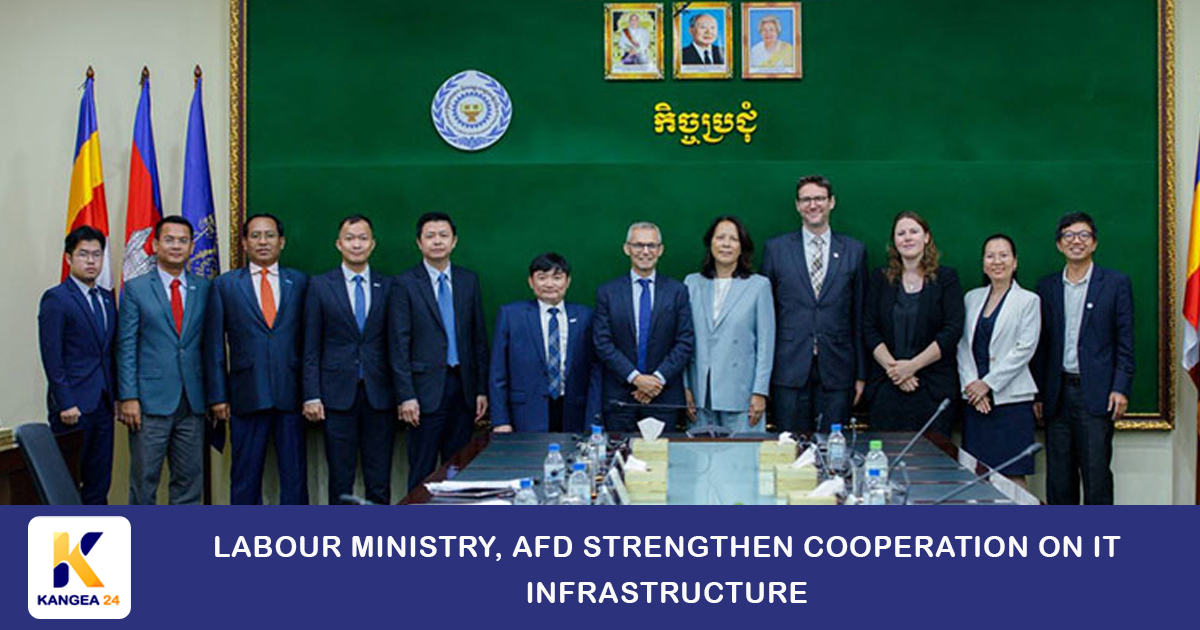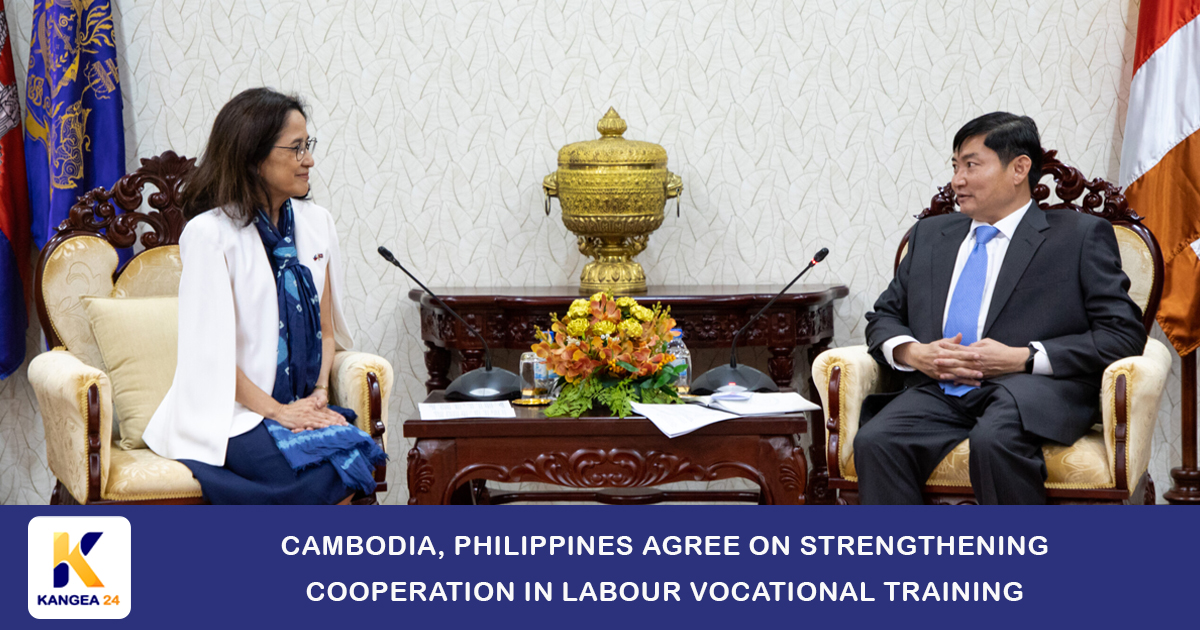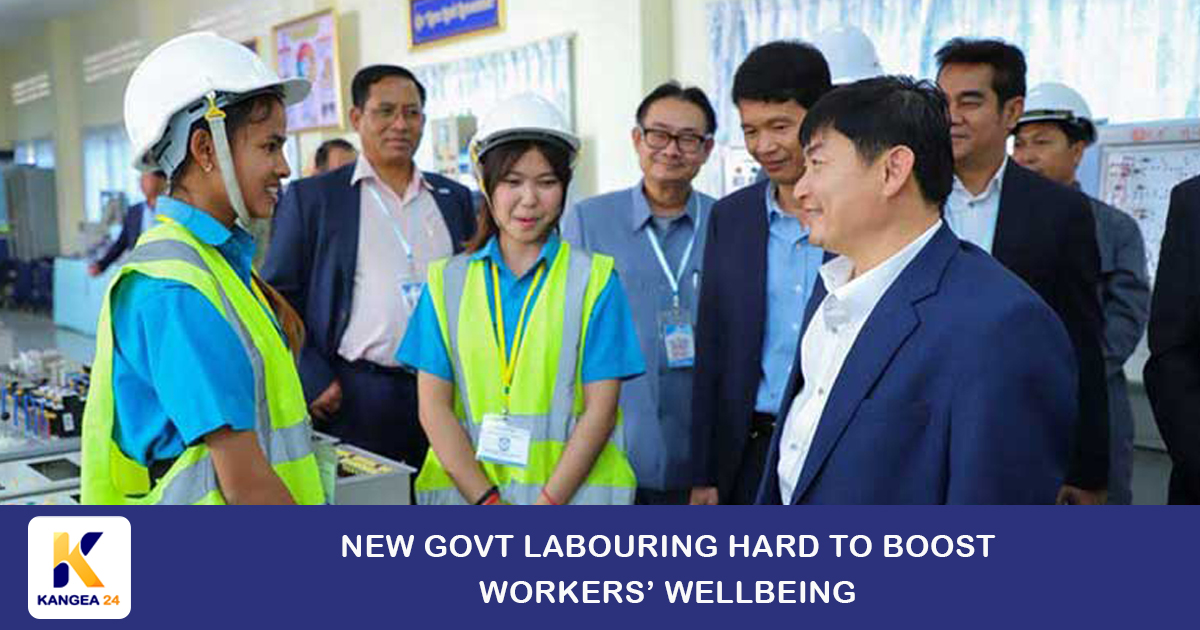





The second round of negotiations for the new minimum wage for Cambodia’s garment, footwear and travel goods industries was held yesterday, marking a crucial step in determining the pay scale for workers in these sectors for the coming year.
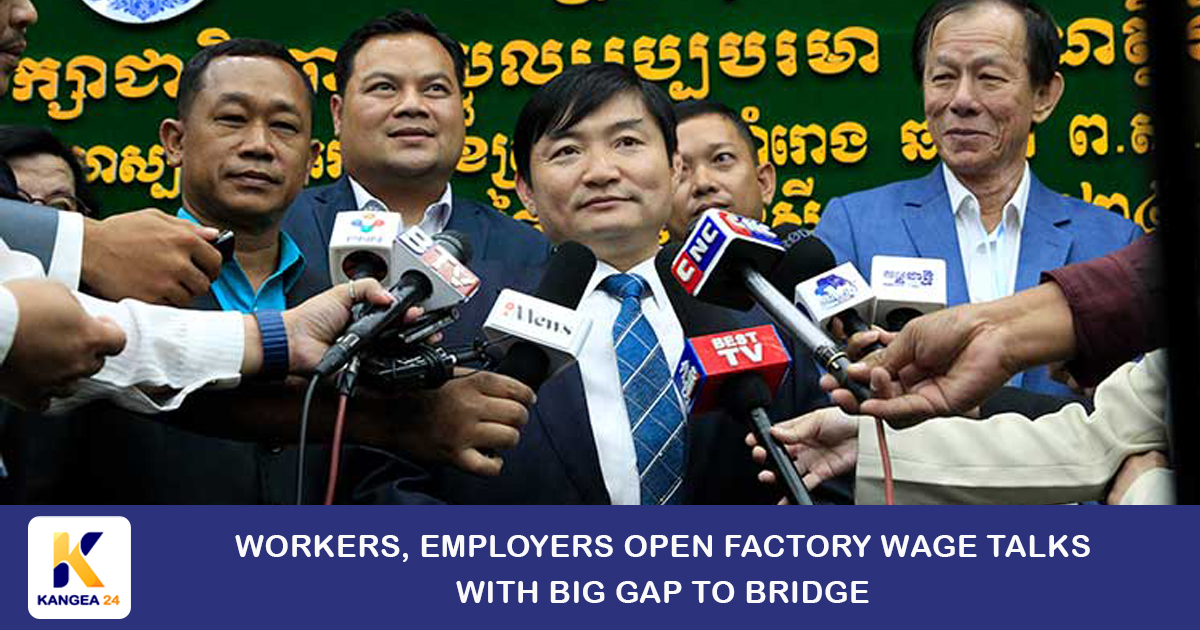
The discussions took place at the Ministry of Labour and Vocational Training, where representatives from both labour unions and employers presented their initial proposals for wage adjustments.
During a press conference following the meeting, Minister of Labour Heng Sour announced that the negotiations were conducted in a positive atmosphere, with both sides willing to engage in dialogue.
“The discussions today were constructive,” said Sour. “Both sides have made their initial proposals: the workers’ representatives are asking for an increase of $14, while the employers’ side has proposed a $1 raise.”
Sour emphasised that representatives from both sides must listen to each other and work together without considering each other as enemies or they will eventually all lose, but through mutual respect they can find a way forward.
“It is an opening figure from both sides. And I believe that these figures will grow closer together at the next meeting and the government will do everything possible to bring each side closer to the other. As of the latest meeting, both sides still did not agree, but we will abide by the minimum wage law and we will vote at the last meeting on September 26 to get our final figure,” he said.
Sour added that market competitiveness and logistics costs are two areas where the workers and employers do not seem to agree with each other. He noted that the unions think that the interest rates on loans from Cambodian banks are low right now so the investors should have access to cheap capital, while the employers point out that their investors mostly borrow money from banks abroad where the interest rates may be higher.
“However, I must emphasise that these wage figures are not final. We will continue our negotiations to reach a consensus,” Sour said.
Kim Chansamnang, a trade union representative, explained that the demand for a $14 increase is based on the rising cost of living due to inflation and the cost of many daily expenses that workers face.
“Our union believes that a $14 increase is a fair and necessary adjustment,” Chansamnang stated. “Workers are spending more on their basic needs, and we hope this figure will be accepted in the upcoming meetings.”
“In terms of inflation and profitability, the export of our products from Cambodia is increasing and our political situation in Cambodia is peaceful. For the union side, we think this is a reasonable figure, what we hope for depends on the actual situation and we need to discuss it further. We hope that we will get an appropriate wage increase for 2025,” he said.
However, he is worried that if the minimum wage increases significantly then the landlords renting rooms and houses to factory workers will just increase the rent by that amount, while inflation will also continue to increase and this will negatively impact worker livelihoods.
On the other hand, Nang Sothy, a key representative of the factory owners, defended the employers’ proposal of a $1 increase, which he said was based on the current economic situation and the current minimum wage in Cambodia having increased to eclipse that of nearby countries such as Vietnam.
